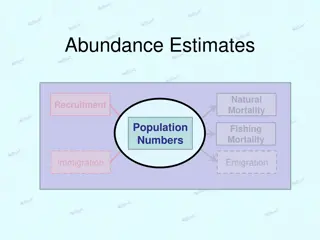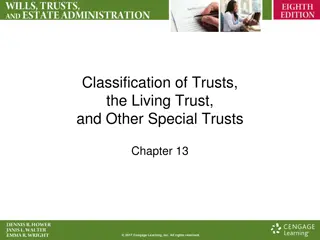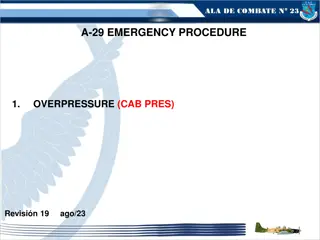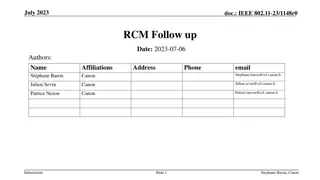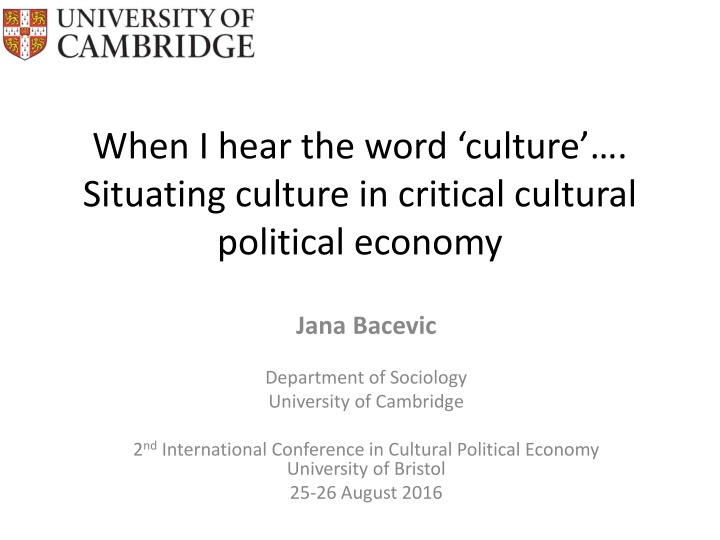
Exploring Dimensions of Culture: Definitions, Agents, and Spatiality
Delve into the complexities of culture through discussions on its ontology, agency, and spatiality. Explore key questions about what culture is, who shapes it, and where it manifests, with insights from various perspectives and theorists.
Download Presentation

Please find below an Image/Link to download the presentation.
The content on the website is provided AS IS for your information and personal use only. It may not be sold, licensed, or shared on other websites without obtaining consent from the author. If you encounter any issues during the download, it is possible that the publisher has removed the file from their server.
You are allowed to download the files provided on this website for personal or commercial use, subject to the condition that they are used lawfully. All files are the property of their respective owners.
The content on the website is provided AS IS for your information and personal use only. It may not be sold, licensed, or shared on other websites without obtaining consent from the author.
E N D
Presentation Transcript
When I hear the word culture. Situating culture in critical cultural political economy Jana Bacevic Department of Sociology University of Cambridge 2ndInternational Conference in Cultural Political Economy University of Bristol 25-26 August 2016
Situating culture: or, catching culture with Pok mon Polysemic (Williams, 1970): means a lot of things Lay // analytical // political uses of the term Is a thing / makes people do things?
When I hear the word culture SCHLAGETER: Good old Fritz! (Laughing.) No paradise will entice you out of your barbed wire entanglement! THIEMANN: That's for damned sure! Barbed wire is barbed wire! I know what I'm up against.... No rose without a thorn!... And the last thing I'll stand for is ideas to get the better of me! I know that rubbish from '18 ..., fraternity, equality, ..., freedom ..., beauty and dignity! You gotta use the right bait to hook 'em. And then, you're right in the middle of a parley and they say: Hands up! You're disarmed..., you republican voting swine! No, let 'em keep their good distance with their whole ideological kettle of fish ... I shoot with live ammunition! When I hear the word culture ..., I release the safety on my Browning!" SCHLAGETER: What a thing to say! THIEMANN: It hits the mark! You can be sure of that. Hans Johst, Schlageter [1933]
(1) WHAT is culture? (ontology) Material or ideal? Constraining or enabling? Norbert Elias: the refinement of behaviour through social norms Freud: culture as a form of control; Foucault: culture as discursive Postmodernism and the cultural turn: culture as a space of creativity, resistance, etc.
(2) WHO is culture? (agency) High culture : created by the elites (~ideology) - Hegemony (Gramsci, Laclau&Mouffe), semiosis (Jessop&Sum) - Countercultures (?) Plurality (multiculturalism): multiple agents - Culture wars , clash of civilizations but: if there are multiple cultures, how do we draw boundaries between them?
(3) WHERE is culture? (spatiality) Within states or across states? (Best&Patterson, Robertson&Dale) Interaction with specific systems of meaning? Civilization as demarcating boundaries (of objects) How to discuss the travel of ideas? (e.g. education policy-making) Are there object/idea interactions that go beyond culture?
(4) WHEN is culture? (temporality) Civilization seems always already in ruins or at least in serious decline Barbarism vs. civilization eternal recurrence? What does the neo-barbarian university look like? First, as Veblen noted in 1918, barbarianism is habituated in utilitarian and monetary aims. These short-term objectives lead to employers and university managers becoming habitually impatient of scholarly work that does not lend itself to some practical use . Utilitarian values in universities produce make-believe scholarship or a penchant for pragmatic knowledge in a corporation of learning . Today s barbarians count, measure and rank as a means to evidence combat readiness (in research and teaching quality assessments) and to consolidate institutional prestige (assuming the assessment is favourable ) (Coleman, 2016)
HOW is culture? (epistemology) Culture as cause system of dispositions, habits, values etc. that influence behaviour (Archer s Socio-Cultural Integration) Culture as intervening variable shared system of meaning that mediates outcomes (e.g. variegated capitalisms, etc. Sayer, Jessop&Sum) Culture as consequence (outcome) accrual of visible patterns over time (civilisation? Robertson&Dale) If all of the above (preferred answer) what is it good for?
Browning to blackbox: how to avoid ontological gerrymandering The metaphor of ontological gerrymandering suggests the central strategy for accomplishing this move. The successful social problems explanation depends on making problematic the truth status of certain states of affairs selected for analysis and explanation, while backgrounding or minimizing the possibility that the same problems apply to assumptions upon which the analysis depends. By means of ontological gerrymandering, proponents of definitional explanation place a boundary between assumptions which are to be understood as (ostensibly) problematic and those which are not. This "boundary work" creates and sustains the differential susceptibility of phenomena to ontological uncertainty. Some areas are portrayed as ripe for ontological doubt and others portrayed as (at least temporarily) immune to doubt. (Woolgar & Pawluch, 1985)
WHY is culture? (& where do we go from here) Different political uses and implications (e.g. Fraser politics of redistribution & politics of recognition) Very likely a neoconservative backlash but one that will also make use of the concept (e.g. culture of fear ) Political conflicts are increasingly going to be framed in cultural terms (cf. New Zealand) interdependent, but also agential
Back to the drawing board A deliberately hierarchical/stratified concept: (1)Economy (2)Political (3)Cultural (4)Critical
Thank you! jb906@cam.ac.uk









